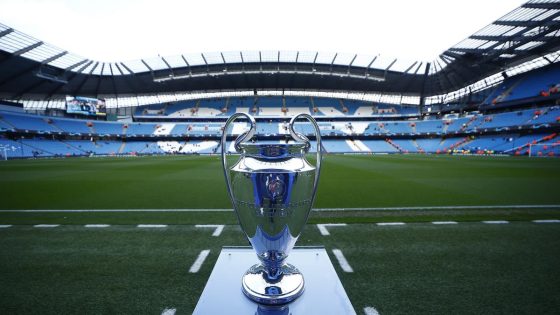Over eight days in August 1900, dozens of swimmers dove into the muddy waters of the Seine River in Paris to compete in the second Olympic Games. Cheering crowds packed the riverbank, as the strong downstream current carried athletes to impossibly fast finish times.
In a newspaper review, editor W. T. Stead described the Seine as “the main street” of what was then “the greatest show on earth” — even if it did have a bit of a smell.
“It is extraordinary, the extent to which the French have utilized their river,” wrote Stead, then 51.
“In hot weather the fragrance reminds one of Venice, but, odourous or otherwise, the bright, rushing current … adds immensely to the general effect.”
This summer, Olympic athletes could find themselves back in the Seine as the Olympics return to Paris. Triathlon and marathon swimming are scheduled to take place in the river, where it has been illegal to swim for a century.
Politicians insist the water will be clean enough for athletes by then, but experts aren’t so sure.
Is the Seine safe to swim in?
Like many old cities around the world, Paris has a combined sewer system, which means wastewater and storm water flow through the same pipes. Those pipes can reach capacity when it rains long and hard, meaning raw wastewater — like sewage — flows into the Seine instead of a treatment plant.
Swimming there has been banned since 1923, with a few exceptions for the odd competition.
The city has tried to clean up the river, but the water has tested unsafe for humans in recent weeks, though cleaner on other days. Data published by local authorities on E. coli bacteria levels in the Seine showed that the river was suitable for swimming six out of nine days between June 24 and July 2, according to Reuters.
Dan Angelescu, founder and CEO of Fluidion, a water-monitoring tech company, has been testing the river water for years. Having seen the data, he says, he personally wouldn’t swim in the Seine.
“When our data says the water quality is good, I’ll be the first to jump in,” Angelescu said in an interview with CBC News last month.
“Over the past two months, we haven’t seen a single day where water quality was acceptable. So we’re starting to be a little bit worried.”
Dan Angelescu, founder and CEO of Fluidion, a Paris- and Los Angeles-based water-monitoring tech company, says he wouldn’t swim in the Seine based on water quality in June 2024.
How is Paris planning to clean the river?
Paris invested €1.4 billion ($2 billion Cdn) in building infrastructure to catch more storm water when it rains — the same dirty wastewater that flows into the Seine during heavy rainfall.
Officials opened a massive underground water storage basin next to the Austerlitz train station in May, hoping the facility can collect excess rainwater and stop waste water from getting into the Seine. The basin can hold the equivalent of 20 Olympic swimming pools of dirty water that will now be treated.
It’s the main piece of major infrastructure improvements the city has rushed to finish in time for the Olympics, but also to ensure the Seine stays clean long after the closing ceremonies.
French Sports Minister Amelie Oudea-Castera took a dip in the Seine River to prove it’s safe for swimming, in light of the upcoming Olympics and questions regarding the Seine’s water quality. However, while Parisians say they trust the scientific testing being done, they themselves would not dare hop into the water.
The problem is that a few spells of heavy rain could push E. coli levels beyond the limit of 900 colony-forming units per 100 millilitres that the World Triathlon Federation has determined as safe for competitions.
“The Seine is not a special case,” Metin Duran, a professor of civil and environmental engineering at Villanova University who has researched storm-water management, told The Associated Press. “It really is a complicated and very costly problem.”
So will the river be swim-ready in time?
Politicians and organizers have insisted it will be. French President Emmanuel Macron said the cleansing of the Seine “will be a tremendous moment of French pride and celebration,” while Paris Deputy Mayor Pierre Rabadan said “there was no Plan B.”
The cleaning plan took longer than expected due to unusually heavy spring rainfall, but organizers hope the combination of dry, sunny summer weather and new infrastructure will make enough of a difference.
“It’s still a challenge because we know that, with big rain, we are exposed to risk. But … because we started the program four years ago, the water quality now is much better,” said Tony Estanguet, president of the Paris 2024 organizing committee and three-time Olympic canoeing champion.
“So whatever will be the situation for the games, it will be a very positive legacy for the Seine.”
Estanguet is set to join Paris Mayor Anne Hidalgo for a dip in the river on Wednesday to prove the river is clean enough to host outdoor swimming events. French Sports Minister Amélie Oudéa-Castéra already took the plunge on Saturday.

What’s this about a ‘shit in the Seine’ protest?
Hidalgo was originally expected to swim in the river with Macron on June 23. Parisians who were fed up with the amount of money being spent on the Olympics encouraged people to poop in the river before the politicians took the plunge. Some declared their allegiance to the cause under the hashtag #JeChieDansLaSeineLe23Juin, which translates to “I shit in the Seine on June 23.”
Angelescu said it would have to be an immense amount of human waste to bring down the water quality.
“It would have to be thousands and thousands of people that do this,” said Angelescu. “I really hope it’s not going to be the case, but it certainly makes headlines in the newspapers when people say that.”
That swim was ultimately postponed. Macron is not expected to join Hidalgo on Wednesday, having called a snap parliamentary election.
What happens to the outdoor swimming events if they can’t use the Seine?
If the Seine isn’t clean enough for the athletes, the triathlon will drop the swimming portion and run as a duathlon. The marathon swimming competition would be moved to the Vaires-sur-Marne Nautical Stadium, which is just outside Paris and is already going to be hosting the rowing and canoe-kayaking events.
“It’s not very common, but it has happened a few times,” Olalla Cernuda, head of communications at World Triathlon, told AP the possibility of the swim portion being cancelled.
“And it’s always linked with water quality issues.”
Source Agencies






